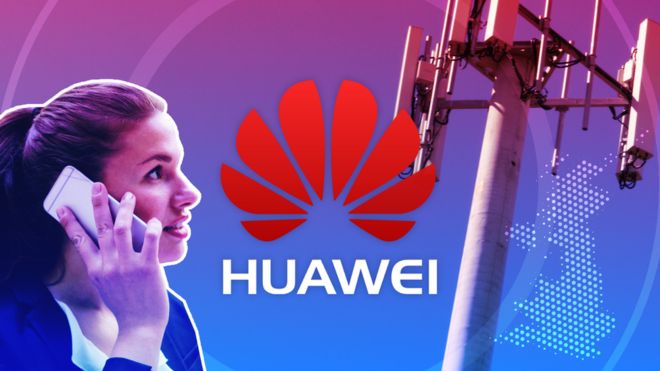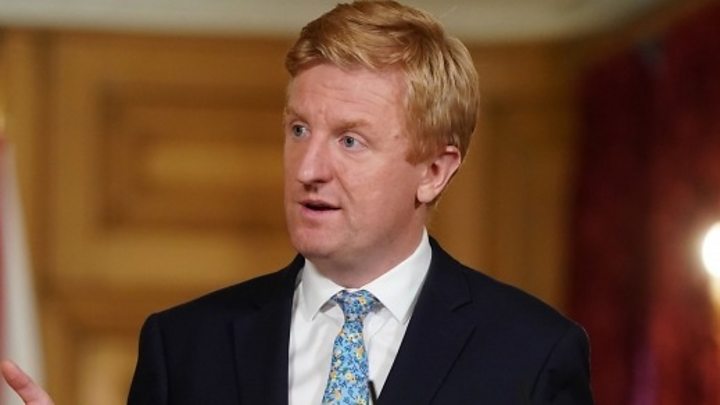
Huawei 5G kit must be removed from UK by 2027
Huawei – The UK’s mobile providers are being banned from buying new Huawei 5G equipment after 31 December, and they must also remove all the Chinese firm’s 5G kit from their networks by 2027.
Digital Secretary Oliver Dowden told the House of Commons of the decision.
It follows sanctions imposed by Washington, which claims the firm poses a national security threat – something Huawei denies.
Mr Dowden said the move would delay the country’s 5G rollout by a year.
The technology promises faster internet speeds and the capacity to support more wireless devices, which should be a boon to everything from mobile gaming to higher-quality video streams, and even in time driverless cars that talk to each other. 5G connections are already available in dozens of UK cities and towns, but coverage can be sparse.
Mr Dowden added that the cumulative cost of the moves when coupled with earlier restrictions announced against Huawei would be up to £2bn.
“This has not been an easy decision, but it is the right one for the UK telecoms networks, for our national security and our economy, both now and indeed in the long run,” he said.
Because the US sanctions only affect future equipment, the government has been advised there is no security justification for removing 2G, 3G and 4G equipment supplied by Huawei.
However, when swapping out the company’s masts, networks are likely to switch to a different vendor to provide the earlier-generation services.
Huawei said the move was: “Bad news for anyone in the UK with a mobile phone” and threatened to “move Britain into the digital slow lane, push up bills and deepen the digital divide.”
The action, however, does not affect Huawei’s ability to sell its smartphones to consumers or how they will run.
Broadband switch
New restrictions will also apply to use of the company’s broadband kit.
Operators are being told they should “transition away” from purchasing new Huawei equipment for use in full-fibre networks, ideally within the next two years.
Mr Dowden said the government would “embark on a short technical consultation” with industry leaders about this.
He explained that the UK needed to avoid becoming dependent on Nokia – which is currently the only other supplier used for some equipment – and he wanted to avoid “unnecessary delays” to the government’s gigabit-for-all by 2025 pledge.
BT’s Openreach division told the BBC it had in fact recently struck a deal to buy full-fibre network kit from a new supplier – the US firm Adtran – but first deliveries would only start in 2021.
Chip concerns
The UK last reviewed Huawei’s role in its telecoms infrastructure in January, when it was decided to let the firm remain a supplier but introduced a cap on its market share.
But in May the US introduced new sanctions designed to disrupt Huawei’s ability to get its own chips manufactured. The Trump administration claims that Huawei provides a gateway for China to spy on and potentially attack countries that use its equipment, suggestions the company strongly rejects.
The sanctions led security officials to conclude they could no longer assure the security of its products if the company had to start sourcing chips from third-parties for use in its equipment.

The minister cited a review carried out by GCHQ’s National Cyber Security Centre as being the motivation for the changes.
The centre has said Huawei products adapted to use third-party chips would be “likely to suffer more security and reliability problems”.
But other political considerations are also likely to have also come into play, including the UK’s desire to strike a trade deal with the US, and growing tensions with China over its handling of the coronavirus outbreak and its treatment of Hong Kong.
READ ALSO – Fintech – The Global Pandemic Has Created New Opportunities – Mahmood Ahmadu